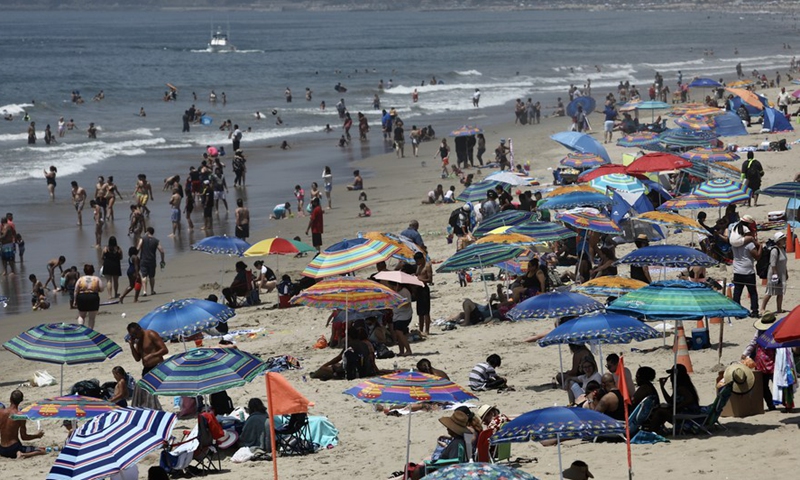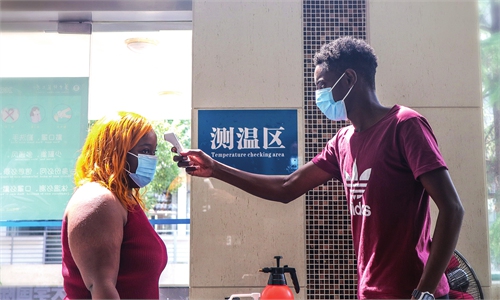IN-DEPTH / IN-DEPTH
Rising COVID-19 cases in US campuses worry overseas students

People are seen on the Santa Monica Beach, Los Angeles County, the United States, Aug. 15, 2020. (Xinhua)
Students in the US are worried for their safety as more universities experienced a rise in COVID-19 cases after campuses reopened for fall semester in recent weeks.
More than 36 states in US reported nearly 9,000 cases on university campuses, according to media reports.
More than 1,200 students have tested positive for COVID-19 at the University of Alabama since classes resumed, CNN reported on Saturday.
The University of Southern California announced 104 new cases among students over the past week, with the spread primarily attributed to gatherings of students at off-campus housing, media reported.
"The insufficient anti-epidemic efforts of Trump administration made many students still hold low anti-epidemic consciousness," Wang Ran (pseudonym), a 28-year-old Chinese student pursuing her PhD degree in Massachusetts, told the Global Times on Sunday.
China strictly enforced epidemic prevention and control measures while the US had no national guidelines empowering schools to require students obey health regulations, Wang said.
"A large amount of money is required for anti-epidemic work on campuses. However, it may be a big burden for some public colleges to afford," she added. Even thoughWang's university reopened last week, she refused to return to campus citing safety concerns.
China is fully reopening schools for fall semester, confident campuses are well-equipped against COVID-19. According to China's Ministry of Education, 202 million out of 280 million students in China, accounting for 75 percent, have returned to campus in the spring semester. No campus infections have been reported.
"Unlike China, where the digital health code can prove your movements, we are only required to fill out a form to declare we are healthy when entering our school gate. However, the authenticity of information only relies on the person who fills it out," Lee Hyo-min told the Global Times.
Lee, a 37-year-old South Korean student at the Swedish Institute College in New York, questioned the effectiveness of the school's anti-epidemic policy. Her school has resumed its clinical internship course taught two days a week since the middle of August.
Lee said she was nervous returning to school amid the epidemic because her school is in Manhattan, the most densely populated county in the US.
"Along with the Trump administration who insists one strategy that if you don't take your temperature, there is no COVID-19 case, I can only rely on myself," Lee said. "During this period, some of my classmates have lost contact with me. I'm afraid they're infected. When it happens to the people around me, I will get really scared."
Liu Yujia, 21, is a junior at Georgia Institute of Technology. Given the severity of the pandemic in the US, much of Liu's curriculum is still conducted online.
Although Liu's school has made preparations for epidemic prevention, she said going back to school is still risky. "There are no restrictions on entering the campus. I am not sure whether my classmates still go to bars or parties frequently," she said.
Reading reports of many students being diagnosed at college, Liu's online classes have not assuaged the concerns of her family. "They make several phone calls every day to tell me to keep wearing a mask outside," Liu said.

